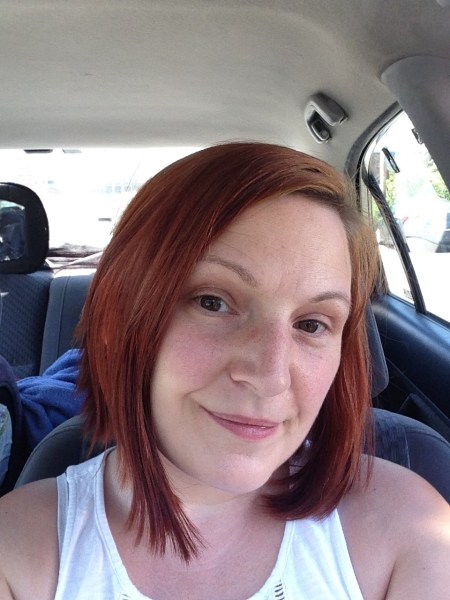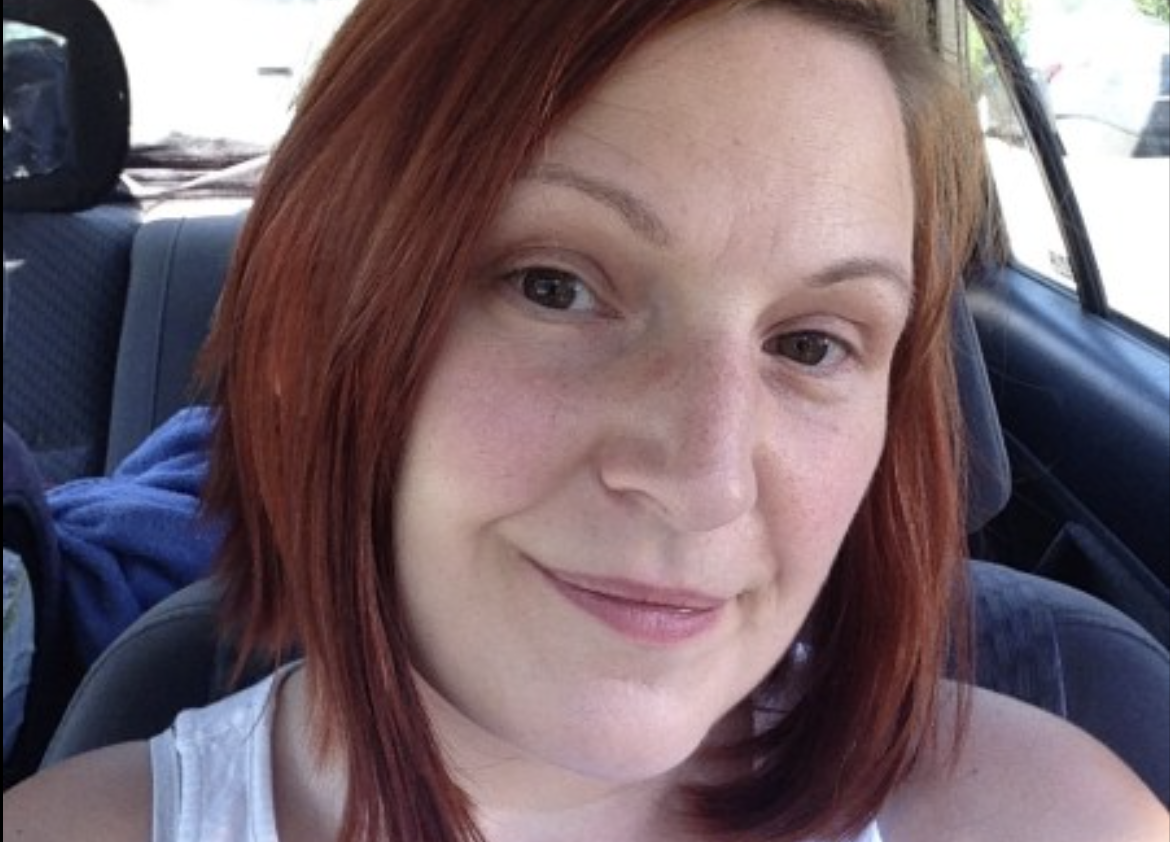Interview
What do you write?
I write creative nonfiction. I recently discovered and fell in love with the lyric essay/memoir, and feel like this is where my voice is. I’m currently writing lyrical nonfiction, and learning more about the form as I go along. My mentor this semester is T. Fleischmann. I am learning so very much from them, and am so grateful that they are guiding me along in this new territory. I’m trying to learn as much as I can about lyric so that I can use the form correctly to give my voice the avenue it needs to come out in the work.
Is there an author or artist who has most profoundly influenced your work?
There are so many: Jesmyn Ward, Mira Ptacin, Nick Flynn, Maggie Nelson, Lia Purpura, Mark Doty, and, most recently, Roland Barthes.
Why did you choose Stonecoast?
I chose Stonecoast because of the diverse faculty and the excellent reputation of the program. Every single person on the faculty, in the administration, and in the student body genuinely cares for and about you. We have such a tight-knit community. I don’t think you can truly find that anywhere else. There’s just such an authentic, special feeling to this program.
What is your favorite Stonecoast memory?
My favorite Stonecoast memory has to be my first (winter) residency. I remember feeling so shy and awkward. When I sat in the meeting with my cohort, I knew I was in the right place. Everyone was open, fun, and welcoming. Also, I distinctly remember Suzanne Strempek Shea coming up to me and making me feel so welcomed during one of the mixers before faculty readings. I was hanging toward the back of the room by myself, too afraid and shy to talk to anyone, and she came right up to me and struck up a conversation. She has this wonderfully warm way of making people feel so welcomed.
What do you hope to accomplish in the future?
In the future, I hope to publish my memoir and teach creative writing. I want to teach adult ed, and teach in and around my community, but I also hope to teach in a low residency MFA program like Stonecoast. My ultimate goal is to do all of this while making a life writing.
If you could have written one book, story, or poem that already exists, which would you choose?
Gosh, what a question! As far as memoir goes, especially lyric memoir, I really admire Nick Flynn’s Another Bullshit Night in Suck City. The way the book is organized and written is so beautiful, so painful. I am inspired to write and create a lyric memoir like that. Maggie Nelson’s Bluets is another inspirational book. I would have to say that these two are tops on my list right now.
Gosh, what a question! As far as memoir goes, especially lyric memoir, I really admire Nick Flynn’s Another Bullshit Night in Suck City. The way the book is organized and written is so beautiful, so painful. I am inspired to write and create a lyric memoir like that. Maggie Nelson’s Bluets is another inspirational book. I would have to say that these two are tops on my list right now.
Featured Work
“Ryan” and “Evelyn” are excerpts from the lyric memoir Nikki is currently writing about her family, husband, and two autistic children.
Ryan
Capsules sustain. Pumped in oxygen, tubes, wires—green, yellow, blue, red—monitors beep, flashing numbers, statistics rising and falling like elevators in skyscrapers.
One, two, three pounds. Average weight becomes the minority.
Curtains pulled, skin to skin, life breathed into premature bodies. Body heat, blanket warm and soft.
Tiny diapers not sold in stores. Clothes that fit dolls. Nurses guide trembling hands, hands press against capsules, breath fogs glass, eyes pierce through incubators willing, begging, bargaining for life to stay.
Labor Day phone call. Medical jargon misunderstood as the doctor babbles on. PICC line pierces paper skin, infection invades, infiltrates innocence.
My son, near gone, baby blue eyes roll back, body limp, each breath an exhausted effort. Two pounds featherweight.
My heart races, doctor races, nurses race, reach for the vent. One shot at life.
I scream violently inside, tears pour out. I stand in silence. The whirlwind whips around me.
But what I really meant to say was, don’t go, don’t leave. Don’t steal my soul, stay my son, stay, stay, stay, stay. Linger with me in this lifetime.
Evelyn
John walks through the door, dinner in hands. A small white box, my pizza nestled inside. His—a grinder—meatballs gifting grease to their paper bag captor.
We sit on leather, surrounded by dogs sleeping, kids running, toys scattered on worn wood floors as television blares innocuous obnoxious sound.
The kids fight over my son’s iPad. Evelyn clasps it with small, stubby fingers. Ryan, lanky, determined, quick on his feet, snatches the device from her inquisitive hands.
“She’s going to bang her head,” I say. “I can’t reach her. You’re closer. Stop her before she does it.”
John, legs crossed, foot tilted, winter boot on top of winter boot, sits with worn-out dinner plate decorated in tired patterns, hearts and birds resting on top of the lank of his legs.
“I’m eating,” he says. “My hands are greasy.” He makes his case, clutches the enormous half-grinder in his greasy grip.
My daughter, screaming, drops body to floor, bangs her head—just hard enough to make pain—hard enough to create a hurt that creates more tears. Insult on top of injury.
I yell, rise from sitting, grab our daughter. Looking back, I don’t recall the words, only recall their sting, their razorblade sharpness, the metaphorical blood they draw as they slice my husband’s heart.
“Fuck you,” he says, my back to him as I strap our daughter into her highchair across the room.
The table’s large glass, littered, cluttered by books and papers, stands like a barrier between warring factions.
The energy comes first, precedes the event, palpable, tangible. I hear the soggy crash, turn to see the grinder finish sailing, spitting sauce into the air, onto the table as it lands. My work, soiled, murdered, spoiled. Clean white papers bleeding marinara. John turns, walks out the door. Keys clink, heated energy, screech of tires scream up the driveway. Anger personified, running wild in the dark night.

Nikki A. Sambitsky is currently pursuing her MFA in creative writing, specifically focusing on creative nonfiction in the University of Southern Maine’s Stonecoast MFA creative writing program. Mrs. Sambitsky holds a BA in journalism from Central Connecticut State University. She is currently working on her memoir, which centers on her family, her husband, and two autistic children. Mrs. Sambitsky enjoys writing essay and memoir that explore family, family issues, and autism. Her journalism work and creative nonfiction has appeared in many publications including The Helix, Gravel Magazine, and West Hartford Magazine. She lives with her husband, two children, and way too many animals in a peaceful, rural area of Connecticut.
